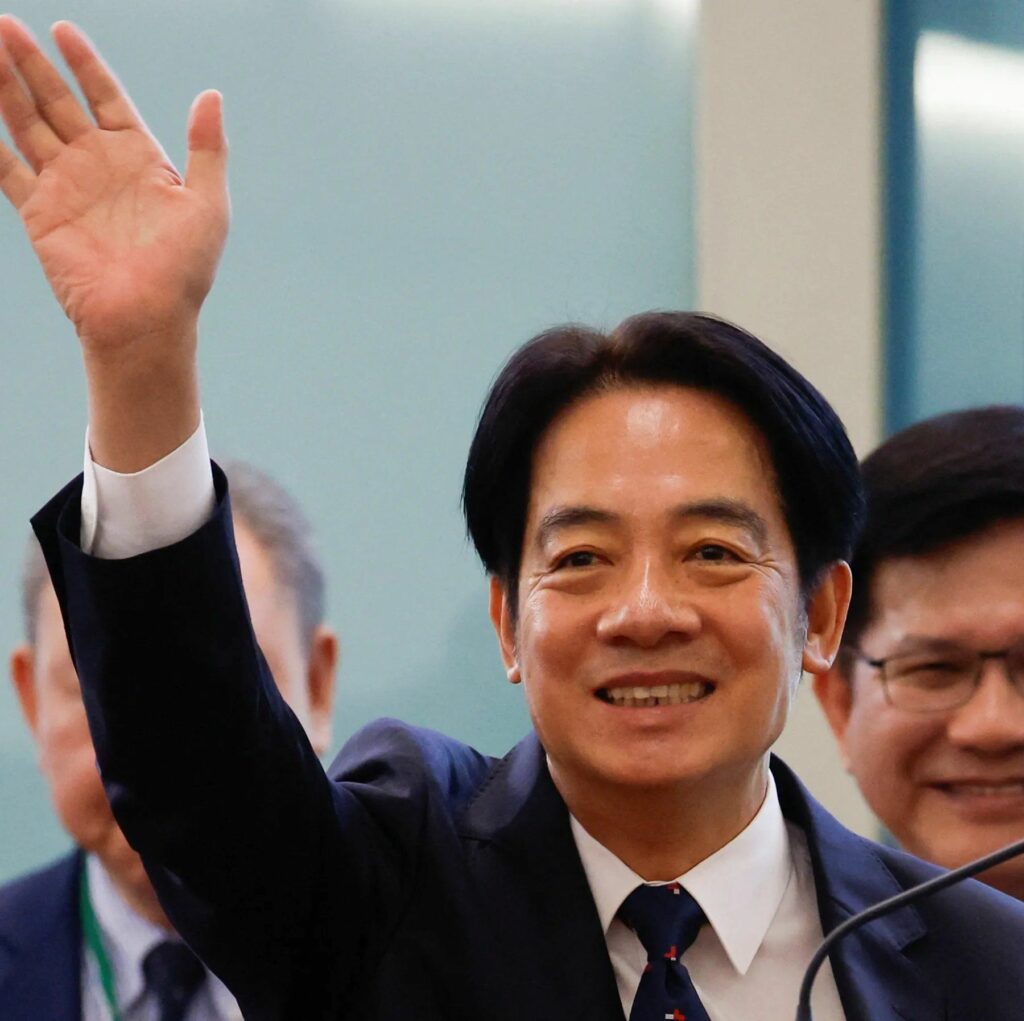
- President Lai Ching-te’s victory holds immense significance for Taiwan, both economically and geopolitically.
- Navigating economic challenges, reducing reliance on a single market, and strategically engaging with global partners are pivotal for Taiwan’s economic resurgence.
- Simultaneously, Lai’s approach to cross-Strait relations and collaboration with the United States will shape the geopolitical landscape in the Asia-Pacific Region.
Lai Ching-te, the ruling-party candidate, secured a win in Taiwan’s presidential election. His opponents gracefully conceded after a closely contested three-way race, setting the course for the island’s relations with China in the coming four years. The outcome carries significant implications for the peace and stability of the narrow strip of water between the Chinese mainland and Taiwan, a region hotly contested as China claims sovereignty. The election had been characterized by China as a decisive choice between peace and the potential for conflict.
Economic Impact of President Lai’s Win
President Lai’s victory comes at a critical juncture for Taiwan’s economy. Despite facing a 21-year low and economic challenges, Lai’s commitment to continuity in policies, including bolstering economic resilience against China, provides a sense of stability. However, the economic reliance on China remains a significant factor, with 35.25% of Taiwan’s exports directed towards its mainland counterpart in 2023.
The decline in GDP and prevailing income inequalities underscore the domestic economic challenges that President Lai must address. Taiwan’s economy, once vibrant, has experienced a downturn, emphasizing the need for strategic economic planning under Lai’s leadership. As the administration navigates these challenges, it becomes crucial for President Lai to implement policies that not only address economic vulnerabilities but also diversify trade relations to reduce dependence on a single market.
Foreign relations, especially in the context of the Indo-Pacific Strategy, will play a pivotal role in shaping Taiwan’s economic future. President Lai’s ability to foster partnerships beyond China, attract foreign investment, and navigate global economic dynamics will be integral to revitalizing Taiwan’s economy.
Geopolitical Implications
President Lai’s win introduces a new chapter in Taiwan’s geopolitical relations, particularly concerning China and the broader Asia-Pacific region. China’s reaction to Lai’s victory, marked by warnings and criticisms, underscores the sensitive nature of cross-Strait relations. Lai’s pragmatic approach, promising continuity while seeking dialogue, signals a nuanced stance that may influence regional stability.
Lai’s election has garnered attention from the United States, with Secretary of State Anthony Blinken and President Biden extending congratulations. Despite Biden reaffirming the One China Policy, Lai’s close alliance and the broader context of the Indo-Pacific Strategy introduce an interesting dynamic. President Lai’s influence on U.S. policy could shape regional power dynamics and impact Taiwan’s strategic positioning.
The potential for increased U.S.-Taiwan collaboration may have ripple effects on regional alliances and security dynamics. Lai’s diplomatic initiatives will be closely observed, with the challenge lying in balancing Taiwan’s interests with the broader geopolitical context, where tensions between major powers persist.
In summary, President Lai Ching-te’s victory holds immense significance for Taiwan, both economically and geopolitically. Navigating economic challenges, reducing reliance on a single market, and strategically engaging with global partners are pivotal for Taiwan’s economic resurgence. Simultaneously, Lai’s approach to cross-Strait relations and collaboration with the United States will shape the geopolitical landscape in the Asia-Pacific region, influencing alliances, security dynamics, and Taiwan’s positioning in the complex web of international relations.
(Aayush is a post-graduate student in International Relations at Kalinga University, Raipur. Views and opinions expressed are the author’s own)
Aayush Pal is a freelance writer on contemporary geopolitical developments. The views expressed in his work are entirely his own.
